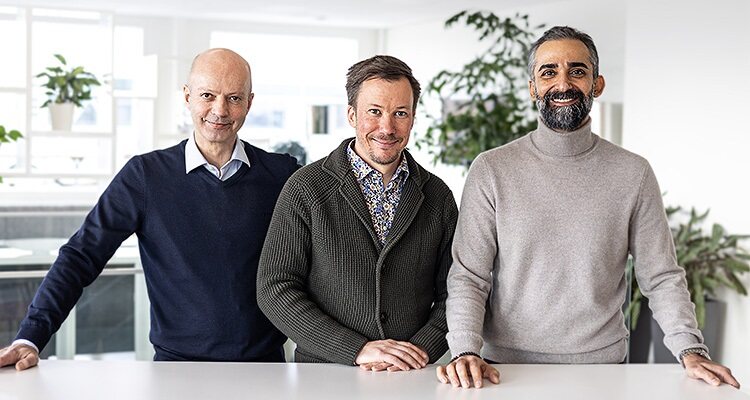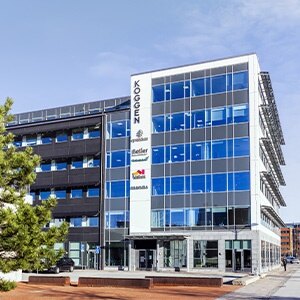
How Beijer Electronics is empowering industries across the globe with innovative HMI interfaces
Beijer Electronics (Beijer) is a multinational, cross-industry innovator and manufacturer of human machine interface (HMI) terminals and automation software. The business helps customers drive efficiency and sustainability by turning data into valuable insights, through a focused offering of innovative solutions for industrial applications within selected areas.
Based in Sweden, the business was built on its strong European presence in terms of its offices and distribution network, and has grown to a global company serving Europe, Asia, and the Americas.
Through both acquisitions and organic growth, Beijer has also expanded its product offering and capabilities. Having partnered with German company, Smart HMI for several years, Beijer acquired the business in April 2023 to add web technology-based visualization software to its portfolio of expertise.
 With lessons from the pandemic highlighting the importance of proximity to customers and decentralized supply chains, Beijer is set to open a new production facility in Malmo, Sweden this year to further support its global operation.
With lessons from the pandemic highlighting the importance of proximity to customers and decentralized supply chains, Beijer is set to open a new production facility in Malmo, Sweden this year to further support its global operation.
Custom capabilities
We’re joined by Axel Gustafson, Vice President of Product Management, Ali Rezaei, Vice President of EMEA, and Jørn Degn, Head of Marketing, to discuss the company’s evolution and product offering, as well as gain their insights into how Beijer Electronics is navigating market changes.
“Beijer was founded in 1981, and started off as a distributor of automation solutions, mainly in the Nordic region,” Ali opens. “The operation gradually grew across Europe, and we began to develop and manufacture our own products in the 1990s, eventually becoming an independent entity listed on the Stockholm Stock Exchange.
“Throughout the years, we expanded our portfolio of HMI products and our geographic reach via acquisitions in Germany, USA, Taiwan, and Turkey.
Axel adds: “We released our X2 HMI range in 2016, which consolidated our HMI panels offering and has been our most successful product launch to date. Most recently, we acquired Smart HMI in Germany after recognizing an opportunity to expand our portfolio of HMI and web-based products, especially as demand for modern and interactive HMI solutions is continually increasing.
“From a technology point of view, we believe that Smart HMI’s innovative solutions will give us a competitive edge in the marketplace. Its additional technical capabilities allow us to better address the evolving needs of modern customers as they adopt new technologies like responsive low code design system integrations. In fact, it’s transformed our relationship with some of our customers, who now see our combined capabilities as being at the forefront of technology.”
Having narrated the history of Beijer’s growth, the trio turn their attention to what factors they believe have enabled such success and longevity. “We work very closely with our customers; it’s ultimately their needs that drive what we do,” Axel states. “Through collaboration, we can identify what our existing and potential customers are striving to achieve and use this data to fuel our product development.
“Over the last few years, for instance, it became apparent that the move towards a responsive, low code, design system integration was a fantastic fit with our WebIQ product. With more than 50 built-in widgets, WebIQ offers customers a ‘drag and drop’ approach to coding instead of writing code manually. Although WebIQ is suitable and user-friendly for individuals with no relevant experience, it also allows those with programming expertise to edit and integrate code, as well as create custom widgets.”
Mitigating challenges
Ali adds: “The industry has historically been platform-dependent, but we’re now seeing a desire to become more platform-independent, particularly on standardized communication protocols. People no longer want to be tied to certain software or hardware; they are demanding the ability to combine and seamlessly move between platforms without needing to do hours of engineering work. 
“This is another advantage of WebIQ, as it is platform independent, so can be run on several devices,” he continues. “WebIQ is also able to communicate via OPC Unified Architecture (OPC UA), a platform-independent, service-oriented, machine-to-machine architecture used for industrial automation. In addition, our existing communication driver stack supports the existing control systems supporting customers in the transition to integrate OPC UA. We believe it will become the most popular communication protocol moving forwards, and we’re strategically positioned to meet demand as it increases.”
Aside from products, Beijer remains committed to its customers amid its global expansion. “The last few years have been a roller coaster with the Covid-19 pandemic and global situation causing a lot of problems in supply chain, such as semiconductor shortages,” Ali reflects. “Both the pandemic and geopolitical tensions across the globe have highlighted the potential dangers of being dependent on a single location. So, to mitigate these challenges, we have a new complementary production unit in Malmo, Sweden, which we anticipate will be up-and-running later in the year.
Sustainable solutions
“With our logistics center located in Malmo, the city was an obvious choice for us to open a new production facility. Today, we see ourselves as a global company and we must act like one too; everything from our research and development team to product management, sales, and logistics must have a global footprint. As we know that our customers are located across the globe, the new site will bring production closer to our European customers and thus eliminate the need to ship finished goods overseas, helping us to reduce our carbon emissions in the face of sustainability.”
Axel elaborates: “Sustainability has been part of our journey for many years. Our products use recyclable materials and we’ve seen a general trend towards sustainable practices in the markets we serve. Many customers are swapping machinery for single-use plastic to paper-pulp equipment, for instance, and with sustainability legislation increasingly coming into force, especially in Europe, we’re a good fit to help customers not only meet these targets but surpass them.”
“We’ve also recently hired a new Head of Sustainability to drive our sustainability agenda,” Jørn adds. “Sustainability is not only a clear directive in product development, but also in terms of the markets and sectors we want to serve. Most of our products are applied within processes that enhance efficiency, reduce downtime, and eliminate waste, all of which help our customers operate more sustainably.”
Inclusivity and diversity
On the broader topic of ESG, Jørn shares Beijer’s approach to company culture. “We’re fortunate to have maintained our family feelings and values as we’ve grown,” he states. “We introduced our tagline, ‘People and technology. Connected.’ not to describe what we want to be, but to reflect what we are. Inclusivity and diversity have been at Beijer’s core since the beginning, and we’re proud to have a diverse team; among our 450 employees, we have 28 nationalities and speak 32 different languages.”
“We’re very much looking forward to 2024, with exciting new products in the pipeline that will meet customer demands in the areas of Smart HMI and WebIQ, while also focusing on creating the next generation of our HMI portfolio,” Axel says. “In the long term, we’re preparing ourselves for the future by building a company that will lead with software. Although software is already an essential element of the business, we see this increasing to a point where it dominates our operations.
“We’ll continue to strengthen our position in the market, and we always have one eye open for acquisitions that add new capabilities and products to our offering,” he concludes. From speaking with Axel, Ali, and Jørn, it’s clear that Beijer is not only focused on serving today’s customers with high-quality digital products, but also preparing for a software-driven future. Considering the company’s growth to date, combined with the determination of its leaders, there is no doubt that Beijer will succeed in these objectives.